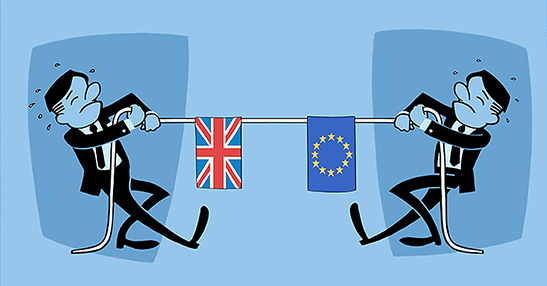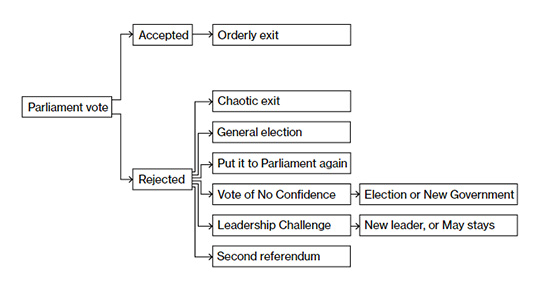
Britain’s withdrawal from the EU hangs in the balance as MPs must vote in Parliament next Tuesday. (Credit: The European Journal)
Anyone who is watching Brexit news closely, or has a vested interest in the negotiation’s outcomes, will know that after next week’s parliamentary debates and subsequent vote, the true manifestation of Britain’s European exit (or not) will become a great deal clearer…
While it is true that every day’s headlines are dominated by the controversial and hard-fought issue, political commentators would concede that the next seven days represent potentially significant and harmful road blocks to Brexit plans spearheaded by Prime Minister Theresa May.
Next Tuesday 11th December is the date set for Members of Parliament (MPs) to vote on whether Parliament will approve or not the Brexit deal, which would allow the Government to proceed with its implementation in the new year.
This vote comes after five full days of debate over both the withdrawal agreement itself and the subsequent political framework post-Brexit.
MPs will be asked to give unanimous approval to May’s stance on contentious issues such as the Irish border backstop, the EU “divorce settlement” of around 39 billion pounds, the extent of the UK’s dependence on the European Court of Justice and a comprehensive trade deal between the European Union and the UK.
Only once there is a parliamentary consensus on these issues, including a maximum of six amendments – or modifications – to all the motions presented, can it be officially ratified.
And this, according to most political observers, looks to be unlikely given the current support Theresa May has in the House of Commons. The BBC puts the number of loyalists within her party at around 226, which – even with defectors from other parties and those MPs simply more fearful of a “no deal” outcome than in favour of Mrs May – will almost certainly fall short of the 320 votes needed to get the deal through Parliament.
If, indeed, this Brexit plan is rejected, the Government will have until 21st January 2019 to put forward a more accommodating deal; otherwise the dreaded “no deal Brexit” will be the default scenario.

Besides being disastrous for Prime Minister May, this would open the flood gates to a broad range of different eventualities, as news outlet Bloomberg summarises excellently in the above graphic.
As you can see, many outcomes would be in play, including a General Election, change of Tory leadership and even a second Brexit referendum.
According to a separate article published by Bloomberg yesterday, the UK should legally be allowed to reverse Brexit in spite of its advanced stage, which will surely reignite support for the latter of these three options and cast an ever-darker shadow over Mrs May’s endeavour to seek approval in Parliament next week.
 en
en



 Vlaams-Nederlands
Vlaams-Nederlands
0 Comments
Leave a Comment
DISCLAIMER
The opinions and comments expressed by contributors to this Blog are theirs alone and do not necessarily reflect the views of VIVA Homes Under the Sun Ltd, any of its associated companies, or employees; nor is VIVA to be held responsible or accountable for the accuracy of any of the information supplied.
Have you got something to say?